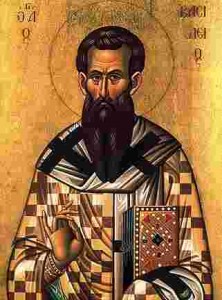The love of many has grown cold; concord among brothers is no more; the very name of unity is ignored; Christian compassion or sympathetic tears cannot be found anywhere. There is no one to welcome someone weak in faith, but mutual hatred blazes so fiercely among brothers that a neighbors’ fall brings them more joy than their own household’s success. And just as a contagious disease spreads from the sick to the healthy during an epidemic, in these days we have become like everyone else: imitators of evil, carried away by this wicked rivalry possessing our souls. Those who judge the erring are merciless and bitter, while those judging the upright are unfair and hostile. This evil is so firmly rooted in us that we have become more brutish than the beasts: At least they herd together with their own kindred, but we reserve our most savage warfare for the members of our own household.
ST BASIL THE GREAT – “On the Holy Spirit” (78)

